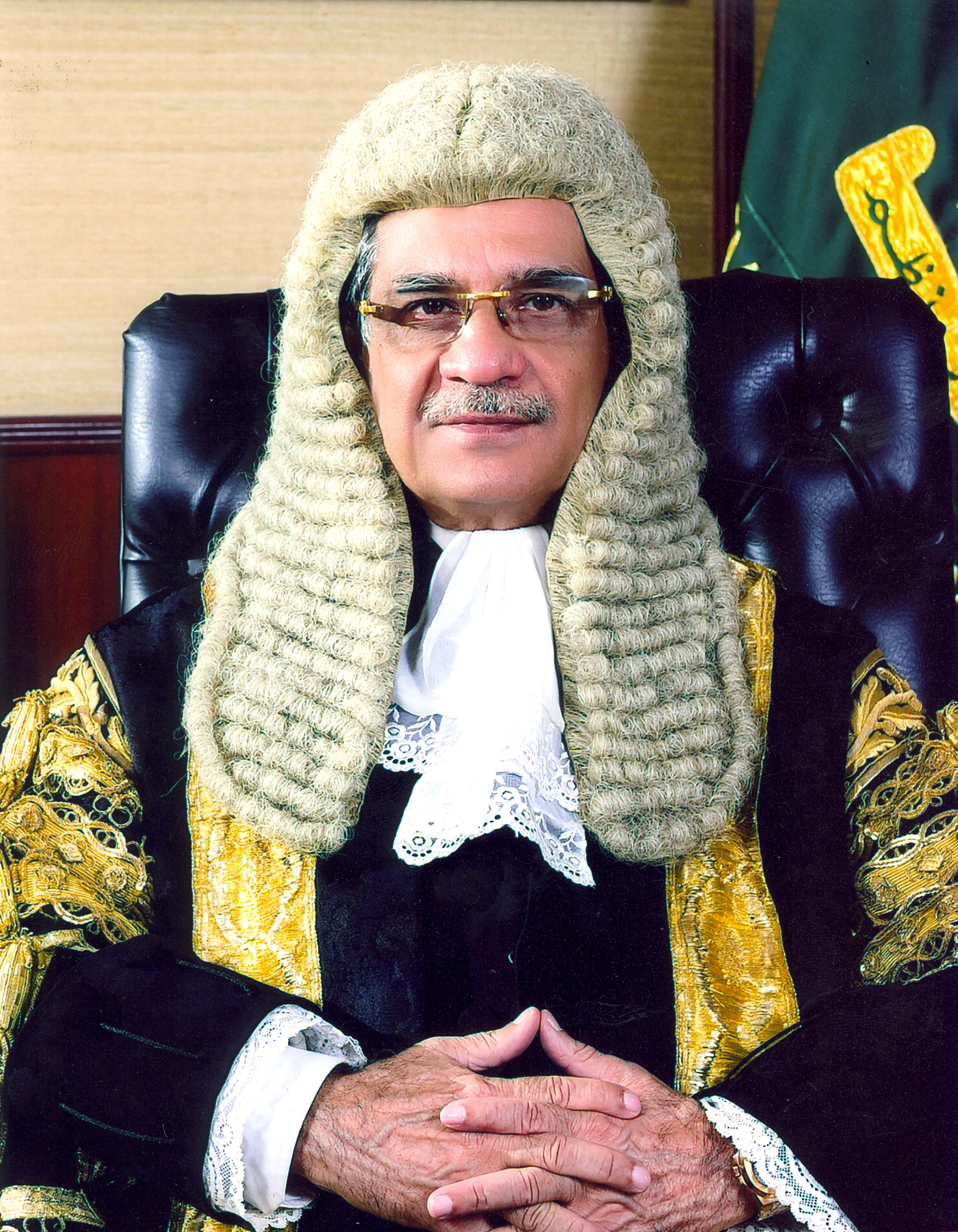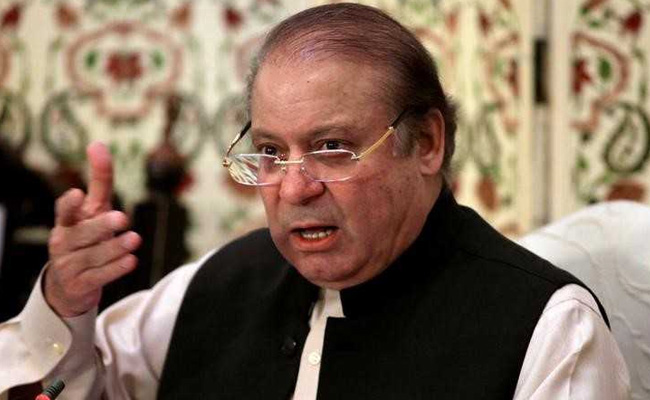

‘Sun has set on Pakistan’s democracy’
Recent events in Pakistan demonstrate the sad and tragic path that appears to be taken inside Pakistan. In the words of former head of Human Rights Commission of Pakistan I.A. Rahman the recent Senate elections demonstrated a reversal in Pakistan’s efforts to develop into a democratic state. According to former head of Pakistan Radio and veteran journalist Murtaza Solangi subterfuge led to the election of Sadiq Sanjrani as Chairman of Pakistan’s Senate.
According to Rahman there are five reasons why the “sun went down” on Pakistani democracy.
First, “the threat that the Senate could play a vanguard role in the consolidation of democratic norms was warded off. The sequence of events that began with the change of government in Balochistan concluded with the passage of the Senate into the establishment’s ward. The country was denied the possibility of having a Senate chairman who enjoyed the trust of both the treasury benches and the principal opposition group, an opportunity any democratic country should have welcomed.”
Second, “Mr Zardari has dealt the PPP a grievous blow. What persuaded him to throw away the chance of having his party member in the Senate chairman’s seat may not be impossible to fathom. If he thinks he has saved his skin forever, he could be disillusioned sooner rather than later.”
As Rahman points out Pakistan’s political landscape is now “dominated by the right and extreme right. The disappearance of the PPP even as a nominally left-of-centre party and the elimination of any difference between it and right-of-centre parties will make the state even more vulnerable to pressure from the extreme right than it already is. This will reduce the state’s ability to meet the challenge of religious extremism and undermine its capacity to evolve a rational policy towards the nations of the world, especially Iran, India, the US and Afghanistan.”
Thirdly, “the PML-N was again found wanting in strategic planning required to meet the call of the moment. It should have known from the very beginning of the process to elect new senators that its nominee for the chairmanship of the upper house had no chance of winning. The steps taken to queer the pitch for the Senate elections were not going to be wasted by allowing a PML-N party member to fill the chairman’s slot.”
Fourthly, “the possibility of using the Senate elections to educate the people in the role of the upper house in the country’s affairs, especially in promoting a democratic dispensation, was ignored by all the parties concerned as if they had a compact not to let the people know how important the Senate’s democratic role is.”
Fifthly, “The election of a member from Balochistan as the Senate chairman would have been considered a step towards democratic development if the manoeuvring that preceded it had been above board.”
Solangi’s article provides the detailed political intrigues that led to the Sanjrani election and dates it back to the election of the Chief Minister of Baluchistan in late 2017.
According to Solangi while “TV pundits went into a frenzy, predicting the dissolution of the Balochistan Assembly by the new chief minister of Balochistan to be followed by that of Khyber Pakhtunkhwa and Sindh, to shatter the electoral college for the Senate elections” the real “plan was first to rout the PML-N government and reduce its upcoming majority in the Senate to stall any legislation in future that could possibly reincarnate a disqualified and humiliated Nawaz Sharif. Many attempts were made in the recent past to bring a motley of forces, including religious zealots, against Nawaz Sharif to weaken and bruise him, rather than politically kill him.”
First “Soon after the nomination process was completed for the Senate elections, the Supreme Court issued a detailed verdict on the Election Act 2017 and struck down its Article 203 under which a disqualified Nawaz Sharif had become king maker again, despite his disqualification. Under the verdict, all decisions made by Nawaz Sharif were not only declared illegal but no protection was provided to his decisions either. All of a sudden, all PML-N ticket holders in the Senate lost their party affiliation and the Election Commission stripped them and declared them Independent candidates.”
Second “The next round was to gain as many Senators as possible to prevent the PML-N from securing a simple majority in the upper house and finally deprive it of the posts of chairman and deputy chairman. A split in the MQM ranks deprived it of two Senators and forced it to settle on just one Farogh Nasim. Raza Rabbani, one of the top architects of the 18th Amendment, was given a Senate ticket after many old guards and Chairman Bilawal threw tantrums before former President Asif Zardari. Huffing and puffing Farhatullah Babar’s wings were already clipped from Khyber Pakhtunkhwa where Asif Zardari was able to pull two Senators with barely five MPAs. The biggest surprise in Punjab was Chaudhry Sarwar not only getting elected but also getting the highest votes. Even the PPP who got nothing in Punjab, got three times more votes than their actual number of MPAs.”
Following this “The heroes of the coup d’etat in Balochistan got six Independent Senators elected. They also had the backing of two PML-N Senators who were close relatives of Sanaullah Zehri. The PML-N had 33 Senators but Ishaq Dar, despite his election, couldn’t come, so they were already one vote short. FATA Senators always swing to the side of Miltablishment, and most of them did. Everybody in the know, knew of the late night huddles in Islamabad under the supervision of the engineers of the anti-Nawaz change. A remarkable feat was accomplished by Imran Khan’s backers when he announced that he would hand over his 13 Senators to the newly liberated Independent Senators of Balochistan. Asif Zardari didn’t lose the opportunity and gunned straight for this non-entity group. It was politically immature, so it was quickly awed and gave its power of attorney to Asif Zardari to make the final decision. As soon as the news came out, this riled the PTI rank and file.”
Next, “This disheartened the PPP old guard and the young Chairman Bilawal. They tried their best on the night of March 11 to persuade Asif Zardari to change his mind and accept a ruling alliance offer to announce Raza Rabbani for the top slot. Zardari knew better to stick to the Miltablishment that has been speaking against the 18th Amendment and its architect Rabbani. Zardari not only stuck to his guns but forced Bilawal to make the unpopular announcement of bowing before the Askari group and demoting Saleem Mandviwalla as the deputy chairman option. Nawaz Sharif’s plan B in case Raza Rabbani was not accepted was Hasil Bizenjo. But Akhtar Mengal upped the ante and said his Senator would not support Hasil Bizenjo. PkMAP and the JUI-F were not too excited about Hasil Bizenjo. As Nawaz Sharif found himself in an awkward position, Bizenjo bailed him out by dropping out of the race, leaving him with no choice but to choose Raja Zafarul Haq over the others. Now the battle for the deputy chairman’s nominee began. JUI-F and PkMAP both wanted the slot. Nawaz couldn’t anger any one of them. Cricket came to the rescue and the toss was decided in favour of PkMAP, angering the JUI-F. On the afternoon of March 12, when the voting began, all JUI-F Senators disappeared from the Senate hall, causing panic in the government ranks. After half an hour later, ministers and party big guns were able to bring them back.”
Finally “As the counting began and the ballots were being dropped in the baskets clearly marked for Sadiq Sanjrani and Raja Zafarul Haq, journalists kept counting. As the magic number 53 for Sadiq Sanjrani was counted, the face of his polling agent, Farooq Naek, broke out into a smile that was so wide it was visible even from the press gallery. Raja was still in the 40s range at that point. The die was cast. The empire and the umpire had ensured that the victory of the coerced coalition and the Noon saw its worst afternoon. The rest, as they say, is history.”
![]()





